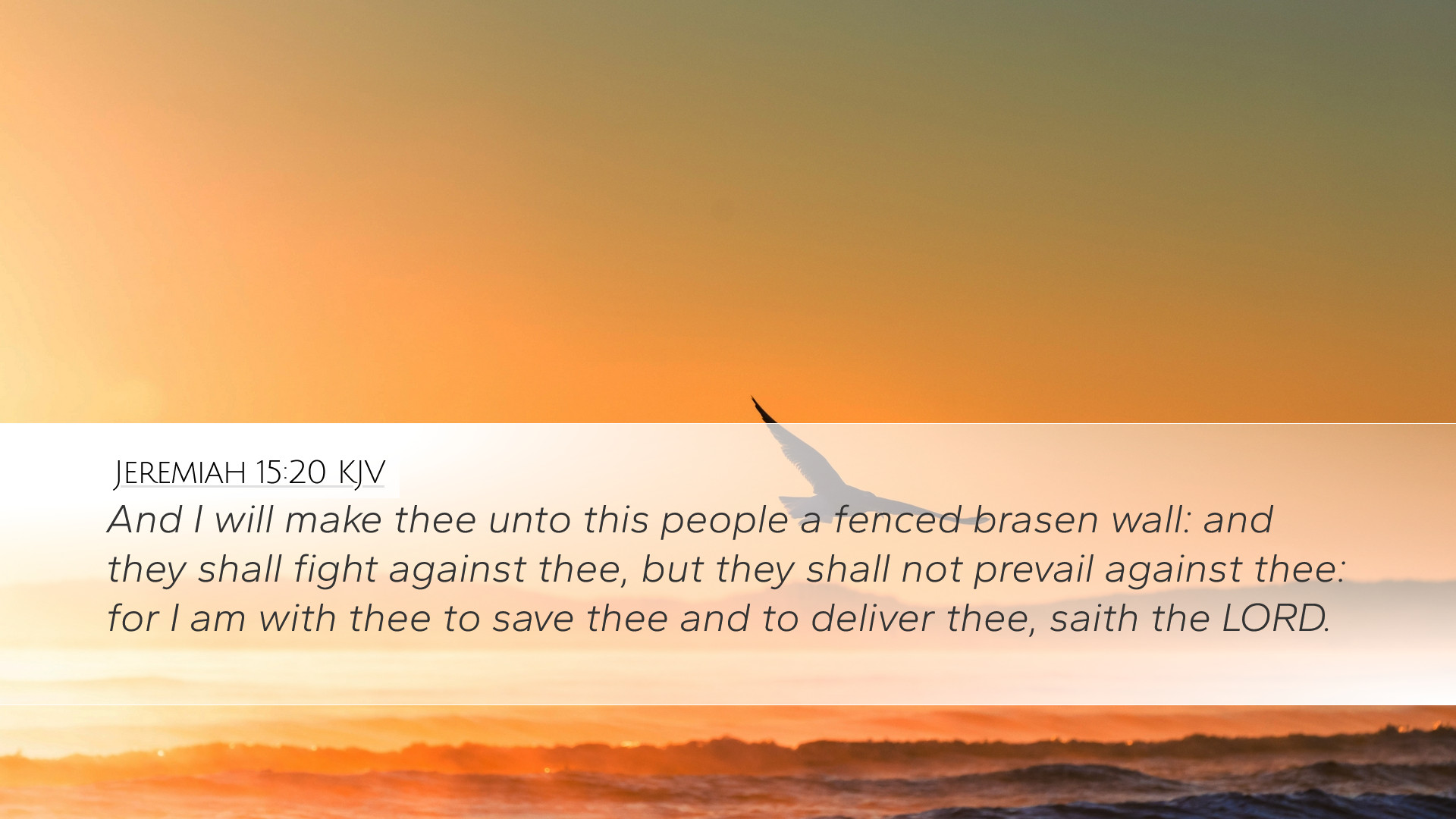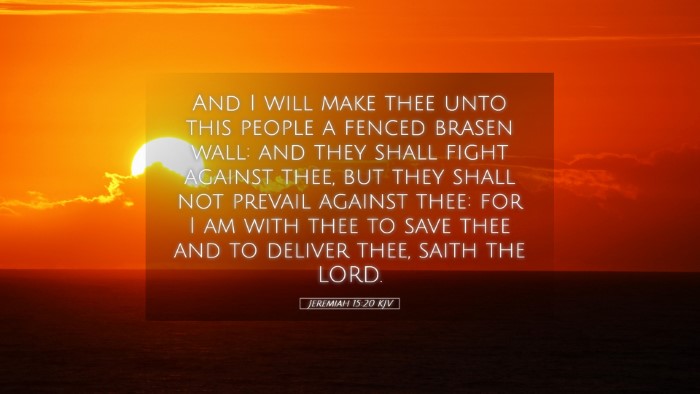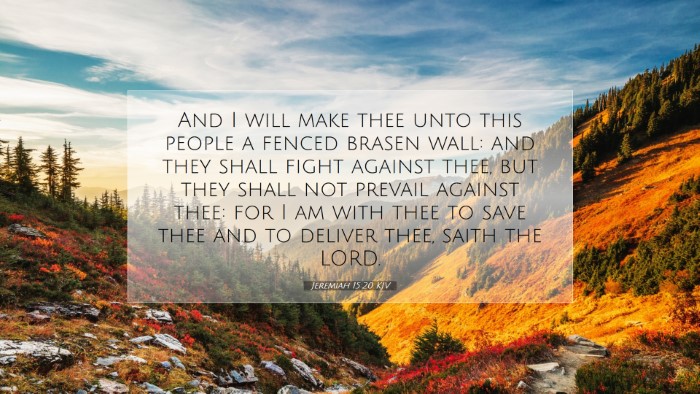Jeremiah 15:20 - Commentary and Insights
Text of the Verse: "And I will make thee unto this people a fenced brasen wall: and they shall fight against thee, but they shall not prevail against thee; for I am with thee to save thee and to deliver thee, saith the LORD."
Introduction
This verse from the Book of Jeremiah encapsulates the dual themes of divine protection and opposition in the life of a prophet. Jeremiah, often referred to as the weeping prophet, faced significant challenges in his mission to call Israel back to obedience. This commentary seeks to explore the rich theological implications grounded in the text while drawing insights from historical interpretations.
Contextual Background
Jeremiah prophesied during a tumultuous period in Israel's history, correlating with the Babylonian siege and the ultimate fall of Jerusalem. His role involved not only foretelling judgment but also urging repentance among the people. Understanding the historical context helps to appreciate the gravity of God’s promises in the face of overwhelming adversity.
Divine Assurance
The phrase “I will make thee unto this people a fenced brasen wall” serves as a potent metaphor for strength and endurance. According to Albert Barnes, this imagery emphasizes God's protective power over Jeremiah against the hostility he would encounter.
- Brass as a Symbol of Strength: The use of brass symbolizes enduring strength. Adams Clarke notes that brass is a substance that resists corrosion and decay, indicating that God will afford Jeremiah a lasting defense against his adversaries.
- Fenced Wall Imagery: The metaphor of a wall alludes to both defense and separation, illustrating how God shields Jeremiah from harm while defining his unique prophetic role.
Opposition and Perseverance
In the latter part of the verse, we find the acknowledgment of the fierce opposition Jeremiah would face: “they shall fight against thee, but they shall not prevail against thee.” This poses an important theological reflection on the nature of spiritual warfare.
- Spiritual Warfare: Matthew Henry comments on the relentless opposition that often accompanies the prophetic mission, highlighting that although adversities may arise, the ultimate victory belongs to God. This promise of non-prevailing opposition is crucial, reminding believers of God’s presence amid struggles.
- Enduring through Trials: The assurance “for I am with thee to save thee and to deliver thee” provides comfort and motivation for perseverance. Clarke emphasizes that God's intention to save means not merely physical protection but also spiritual empowerment for the tasks at hand.
Theological Insights
This verse not only pertains to Jeremiah's situation but resonates with broader theological themes relevant to contemporary believers.
- God’s Sovereignty: The promise of divine backing reflects the sovereign nature of God, who empowers His servants. This reflects in the New Testament, where believers are assured of the same divine presence (1 Peter 5:10).
- The Role of the Prophet: Jeremiah's calling sheds light on the role of prophets. They are often called to speak God's truth in settings of rebellion, paralleling contemporary contexts where the truth of God faces societal opposition.
Application for Today
For pastors, students, and theologians, this verse serves as a reminder of the call to boldly proclaim God's word despite opposition and challenges. Here are some practical applications:
- Embracing Divine Protection: In the face of persecution, understanding God’s promise of protection contributes to spiritual resilience in ministry.
- Strength in Community: Just as Jeremiah was promised support, modern believers can find strength in fellowship and communal prayer, reminded that they are not alone in their struggles.
- Faith Over Fear: The unwavering support of God encourages believers to respond to personal and societal challenges with faith, trusting in His deliverance.
Conclusion
Jeremiah 15:20 offers profound insights into the life of God’s prophets and the nature of the spiritual battles they face. Through the promise of divine protection and the assurance of victory, this passage motivates believers to stand firm in their faith amidst adversity, drawing strength from the knowledge that God’s presence is a source of enduring support.


